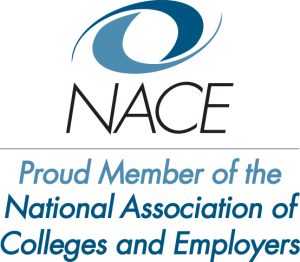Get Ahead and Set SMARTER Goals for Work and Life
Are your goals working for you?
Goals are a powerful influence on behavior; they help us organize our activity and pursue a particular target (like getting a degree, getting a job, or achieving a milestone) with purpose. Yet people struggle with setting goals in work and life; just 25% of adults have clear goals for where they want to be in five years.[1] In general, research suggests that both pursuing and achieving goals boosts happiness, and writing goals down is even more powerful than thinking or talking about them; it creates a kind of psychological contract for people with themselves. This is especially true when people are trying to make decisions about their education or career.
If you are grappling with a discernment process right now, give written goal-setting a try.
Write down five goals that you are currently pursuing in your career path right now. Are they effective goals? A good way to evaluate your goals uses the acronym SMARTER.[2]
Strive for these seven principles when setting a goal:
1-2. A smarter goal is Specific and Measurable.
“To feel better about where my career is headed, as soon as possible” may speak to a pain point, but it’s neither specific nor easily measurable. “Within the next month, interview three people who work in a career path that is exciting to me” is clear, measurable, and a far more effective goal.
3. A smarter goal is challenging, but Attainable.
It may require some effort to pursue, but if you expend that effort, you can achieve the goal. Climbing Mt. Everest next week is a challenging, but unattainable goal.[i] “Complete a battery of career assessments before Friday” or “By tomorrow, schedule a visit with a mentor”—these are attainable.
4. A smarter goal is Relevant to your larger objective.
If that larger objective is, say, deciding on a college major or identifying a new career path to pursue, work backward from there to identify goals that will bring you closer to the desired endpoint. For example, “Within the next week, gather detailed information about training requirements for three promising career paths” is highly relevant goal.
5. A smarter goal is Time-bound.
Open-ended goals are less likely to drive success than goals with target dates. If you hope to have clarity in your career by year’s end, treat it like a deadline and work out a timeline for each goal leading up to it.
6. A smarter goal is one for which you are fully Engaged.
You are setting your own goals here; choose ones you are highly motivated to carry out, because you’ll need that kind of full engagement when you face the inevitable obstacles.
7. Finally, a smarter goal is one for which you receive Reinforcement.
The best kind of reinforcement involves support and encouragement, but also feedback to help you evaluate your progress and make adjustments where necessary. You can also use self-reinforcement (e.g., “I have interviewed two of the three people I said I’d interview this month, and it’s gone well; I can do this. Just one more to go!”). But involving the help and support of others, both for encouragement and accountability, makes reaching your goals all the more likely.
Setting SMARTER goals for your career and life (and putting them in writing) will help you find clarity, and begin to articulate your developing sense of calling. It may relieve some of your stress, too.
Give it a try.
[1] Barna survey research presented in Goff, B. & Barna Research Group (2014). Multi-careering: Do work that matters at every stage of your journey. Grand Rapids, MI: Zondervan.
[2] SMARTER builds on the SMART acronym, which appears to have originated with George T. Doran, a consultant and former director of corporate planning for Washington Water Power Company. Doran, G. T. (1981). There’s a S.M.A.R.T. way to write management’s goals and objectives. Management Review, 70, 35-36. The original five SMART principles evolved somewhat in light of advances in research on goal-setting, which was pioneered by psychologists Ed Locke and Gary Latham. Locke, E. A., & Latham, G. P. (1990). A theory of goal setting and task performance. Englewood Cliffs, NJ: Prentice–Hall. Expanding to SMARTER is my own invention; it adds a little complexity but better captures Locke and Latham’s seminal work.
[3] I mean, unless you’ve been training and have the trip booked already, obviously. Then it is merely an extremely challenging (but not totally unattainable) goal.
-1.png?width=288&height=67&name=PathwayU_PGLogo%20(1)-1.png)



